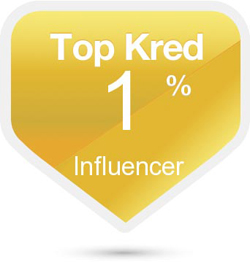New Cap Partners’ Thomas Turney Talks about Important Issues to Economic Growth! Podcast #2
You heard part 1 of Tom Turney’s podcast about the economic growth and problems as it applies ot the state of California, the US and globally. While we are standing in this wobbly middle ground — watching the global markets shift as well as that of the nation, it’s often hard to realize what’s really important to know what are the critical or tipping point issues. As seen in part one, it’s often best to talk to someone who has a truly “global” view of the business landscape. One such person happens to be Thomas Turney, managing principal in NewCap Partners.
![GEDC0247[1]](https://la-story.com/wp-content/uploads/2011/11/GEDC02471.jpg)
Thomas Turney turns his keen eyes to what is one of the key issues on solving the economic situation within the state of California, locally as well as nationally.
Salient points:
-Use of the internet and engage students with computers used in classrooms and at home. Students can work at their own pace and there would be less “dumbing down” of curriculum or even teaching to meet state or federal test standards. Learning at the student’s personal pace is something that should be seen as important.
–Education is not just for K-12 or college level. It’s a life-long process and whether it’s for personal gain or to improve one’s work skills, education should be available to all who seek it regardless of age. MBA’s from major institutions with online instruction are available today.
–The hot sectors of technology that education should be focusing on in terms of training – whether it’s vocational or degree-oriented include medical technology particularly diagnostic procedures.
–Computers and wireless revolution will evolve particularly looking at cloud computing. IT security when it comes to cloud computing will be ramping up as well as reflected by the breaches of major corporations . Hackers will always be attempting to breach the security and one has to realize that you need redundant back-ups for security purposes.
However the ease and simplicity (and lack of physical hardware) will outweigh the security risks providing that companies and people realize that they need to have stellar security in place. More apps are going to move to the cloud because IT labor is very expensive. By moving things to the cloud, makes it more affordable when there’s less hardware and maintenance costs. It does not mean you don’t need IT people or people or apps to cover security, but just less employees. The evolution and innovation of technology will create new sectors and new jobs to be filled while others are down-sized or less in demand.
–Social media and its evolution was discussed in this podcast as well with new destinations like Namesake.com and other developments. The concern about social media from an investor’s perspective is the crowded space and some social media platforms are over-valued. There is discussion of Pandora and when if ever they will be worth their valuation in real dollars. The competition in social media makes it hard to achieve those important benchmarks. (The question begs to be asked will social media apps and platforms EVER make their IPO valuations?)
–Outsourcing of labor costs has made the cost of the products so much less.. which affects labor costs here in the US because we need to be more competitive . The standard of living has gone down 30% and the social divide has created a significant difference between the haves and the have nots.
Thanks to Thomas Turney for his time for this podcast (1 and 2)
If you missed part 1, please click Turney Part 1
Thank you to Gray Defevere for facilitating this podcast/interview series with Thomas Turney.
Stevie Wilson,
LA-Story.com
Subscribe to RSS headline updates from:
Powered by FeedBurner
If you are going to feature content from LA-Story.com including podcasts or videos including the accompanying text, please respect copyright provisions. We require a notation of content origination (meaning credit tag), a linkback to the specific page & please email the link to [email protected] before the piece goes live.
LA-Story.com, LA-Story Recessionista, Celebrity Stylescope, Celebrity Style Slam Trademark/Copyright: KBP Inc. 2007-12

















